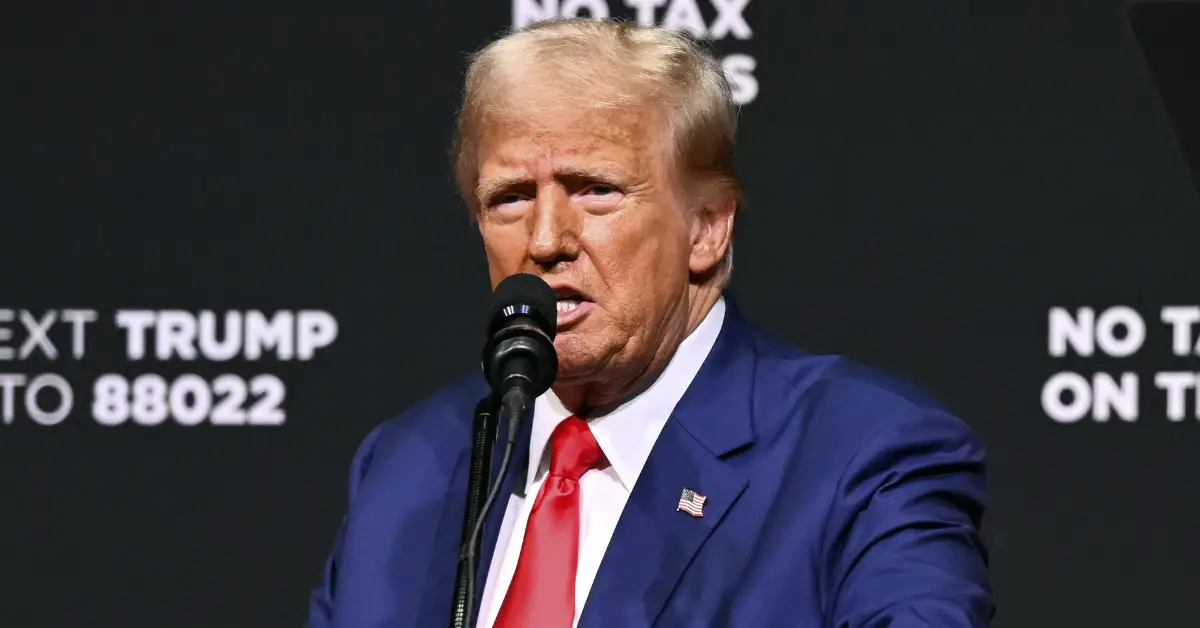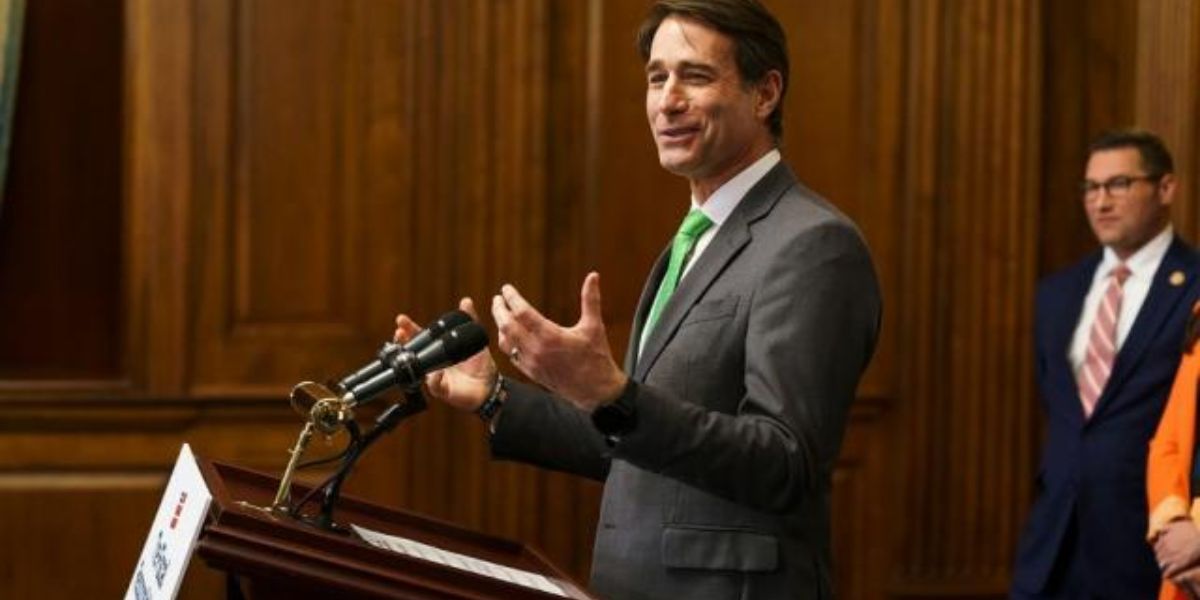David Brooks, a well-known conservative columnist for the New York Times, is making waves with his call for a “comprehensive national civic uprising” against President Donald Trump. Brooks, who has long been associated with the conservative establishment, has become one of the leading voices among traditional conservatives who have grown increasingly critical of Trump’s actions since he took office.
In his recent writings, Brooks pulls no punches when describing his growing disillusionment with Trump’s leadership. He paints Trumpism as a dangerous ideology, one that seeks to dismantle the very institutions designed to limit the reach of unchecked power. For Brooks, Trump’s policies and approach to governance are not just misguided; they represent an existential threat to the values that have defined American democracy.
Trump’s leadership, according to Brooks, is driven by “ego, appetite, and acquisitiveness.” He argues that the president’s primary motivation is personal gain, with little regard for the higher elements of human society, such as compassion, intellectual curiosity, and the pursuit of justice. In Brooks’s view, Trump’s brand of governance represents a rejection of the principles that have long been central to American identity.
One of the key concerns Brooks raises is Trump’s systematic attack on institutions that serve as checks on his power. These include law firms, universities, and various other organisations that are traditionally seen as vital components of a functioning democracy.
Trump, Brooks argues, has made it clear that he sees these institutions as obstacles to his power, and he has consistently worked to undermine them. Whether it’s pressuring universities to abandon academic freedom or manipulating the legal system to favour his political agenda, Trump’s actions are deeply concerning for Brooks, especially considering the long-term consequences for American democracy.
Brooks contends that the response to Trump’s attacks has been woefully inadequate. Rather than mounting a coordinated and unified resistance, various groups and institutions have acted independently, resulting in ineffective and disjointed efforts. For example, while some law firms have stood up against Trump’s executive orders, many others have chosen to collaborate with the administration in exchange for favourable treatment.

Similarly, while some universities, such as Harvard, have drawn a firm line in the sand, others, like Columbia University, have opted for negotiation rather than confrontation. Brooks views this fragmented resistance as a significant problem, one that will only enable Trump to continue pursuing his agenda without meaningful opposition.
“It’s time for a comprehensive national civic uprising,” Brooks declares. He calls for Americans across all sectors of society—law, business, academia, nonprofits, and the scientific community—to come together in a coordinated effort to resist Trump’s agenda. Brooks argues that the only way to confront Trump effectively is for these various groups to unite and present a rival power. Trump, according to Brooks, thrives on division, and it is only by forming a unified front that his actions can be stopped.
Brooks acknowledges that he is not a natural advocate for “movements.” However, he believes that in this moment, the stakes are too high to remain passive. He points out that the fight against Trumpism needs to have both short-term and long-term goals. In the short term, Brooks envisions a campaign to inundate Trump with lawsuits and undermine his legislative and executive initiatives. This, he argues, would serve as a check on his power and prevent him from implementing harmful policies.
In the long term, Brooks suggests that Americans need to ask themselves what societal forces have allowed Trump to rise to power in the first place. He believes that the economic challenges faced by many voters, as well as a deep sense of disillusionment with the political establishment, played a significant role in Trump’s appeal. By addressing these underlying issues—such as economic inequality, job insecurity, and cultural divides—Brooks argues that the United States can prevent future leaders like Trump from capitalising on these grievances to gain political power.
Brooks is not alone in his growing opposition to Trump. Other conservative figures, such as Bill Kristol, have also expressed frustration with the president’s approach to governance. Kristol, the founder of The Weekly Standard, has been an outspoken critic of Trump, particularly on issues of immigration and law enforcement. Kristol has compared Immigration and Customs Enforcement (ICE) agents to “jackboots,” a term that evokes memories of oppressive regimes. Kristol has also demanded an apology from those who supported the “Abolish ICE” movement, signalling that even conservatives who once backed Trump are now rethinking their positions.
What Brooks and Kristol’s shift in tone reveals is the growing divide within the conservative movement. For years, the conservative establishment largely supported Trump, hoping that his policies would align with their own ideological goals. However, as Trump’s leadership has become more erratic and authoritarian, many traditional conservatives have become disillusioned, questioning whether the price of supporting Trump is worth it.
Brooks’ call for a national uprising represents a significant shift in the political discourse. It is a bold statement from a conservative intellectual who has long been seen as a moderate voice within the Republican Party. His words serve as a wake-up call to those who may still be undecided about Trump’s presidency. For Brooks, the fight against Trump is not just about politics—it is about defending the principles that have made America a beacon of democracy and freedom.
Whether Brooks’ call for a unified movement will gain traction remains to be seen. The challenge of organizing such a broad-based resistance is immense, especially given the fragmentation within American society. However, Brooks’ words reflect a growing realisation among many conservatives that Trump’s presidency is not just a passing phase but a fundamental challenge to the very fabric of American democracy.
As the battle over Trump’s legacy continues, one thing is clear: the future of American democracy may depend on the ability of conservatives like Brooks to unite and push back against the forces of division and authoritarianism that Trump represents.
Disclaimer: This article has been meticulously fact-checked by our team to ensure accuracy and uphold transparency. We strive to deliver trustworthy and dependable content to our readers.




